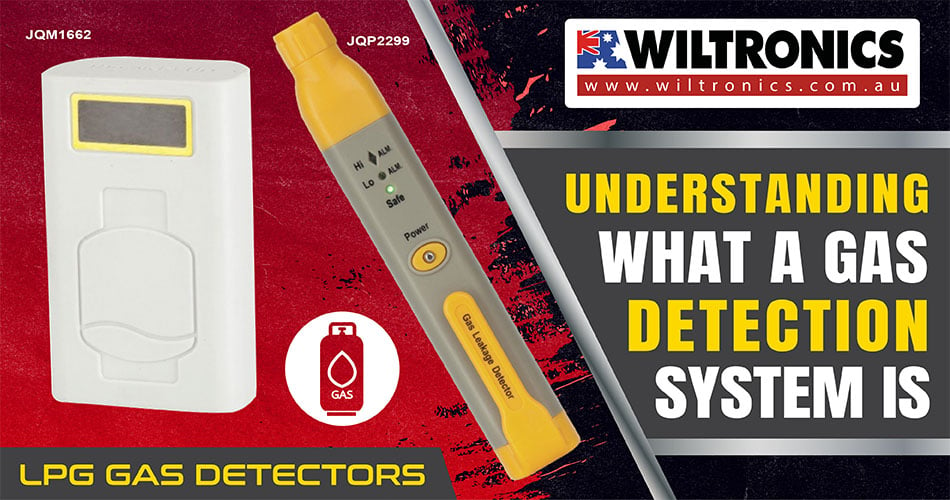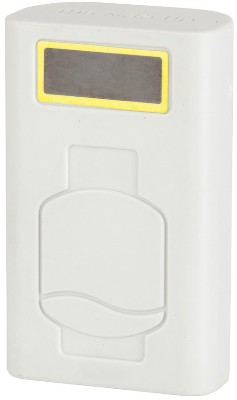LPG Gas Detector: Understanding What a Gas Detection System Is
July 13, 2022

You’ll never know how important a gas detection system is until you are at risk of an accident!
Gas hazards come in three different forms: toxicity, oxygen depletion, and explosive gasses. Whether you are at home or in a workroom, you need to monitor these dangers in your environment.
But how can you minimise the potential for hazardous occurrences? This is where a gas detection system comes in. It is vital in any industrial or domestic setting where gas leaks could occur.
The scope of this article covers the basics of a gas detection system. Plus, the applications and benefits of using an LPG gas detector.
Gas Detection System Explained
A gas detection system says it all. It gives you an early warning about any gaseous presence in the atmosphere.
It is a fundamental safety requirement for industrial or domestic facilities. This means that whether you are a homebody or worker, having one gives you the upper hand.
But keep in mind that a gas detection system does not prevent a hazardous situation. Rather, it minimises the impact of consequences of an event that has already occurred.
Proper design and management are also of utmost importance. These two practices ensure effectiveness in reducing risks to people and the environment.
The Role of Gas Detection in Plant and Home Safety
Exposure to gasses can compromise the safety not only of those in the refineries but also at home. Leak detection systems vary in industry and domestic situations due to the various chains in oil and gas. This makes it essential to have the right system in place.
A gas detection system, in general, is crucial for initiating the safe shutdown of a plant or home. Also, for emergency responses.
Below are the key reasons why it must be implemented with precaution and precision. These apply to both industry and domestic settings.
- Loss of containment in the oil and gas industries leads to major accidents. The same goes for LPG tanks at home.
- Hydrocarbon leaks are major explosion hazards.
- Toxic gas leaks also cause health hazards.
- Gas leaks pose the greatest explosion hazards.
Types of Gas Hazards
As mentioned, you will find gas hazards in three common different forms, and these are:
- Toxicity
- Oxygen depletion
- Explosive gasses
Suppose you have oxygen depletion at home or in the workplace. It will occur in high gas concentrations, and it will then be found in areas other than ambient air.
It does not matter if you have non-explosive or non-toxic gas. Still, it can displace the ambient air and reduce oxygen levels.
Simply put, this incident makes it unsafe for yourself and others to enter the area. One common area for this includes gas storage tanks housed within a confined space. Take a boiler room, for example.
How Does a Gas Detection System Work?
A gas detector measures and indicates a certain gas concentration in the air. Its main role is to prevent toxic exposure and fire, regardless of the setting.
And unlike plug-in-type devices, gas detectors are often battery-operated for safety purposes. They work by signifying high levels of gasses through a series of indicators, such as:
- Alarms
- Lights
- A combination of signals
Modern units are also capable of detecting several gasses at once. This is a great improvement to previous versions, which could only see one gas.
Some LPG gas detectors may be utilised as individual units to track small workspaces. Or as combined units to create a protection system.
When it comes to measuring a specified gas concentration, the sensor does the job. It responds as the reference point or scale. When it surpasses a certain pre-set level, an alarm will activate to warn the user (and it could be you).
Which sensor is used to detect LPG?
An MQ-2 Gas Sensor is among the most broadly used gas sensors to identify LPG, alcohol, CO and methane. It operates in a current of 5V, and it has a preheat time of just 20 seconds.
How accurate are gas sensors? Typically listed as having a plus or minus five per cent, accuracy they are connected to having a confidence interval of 95%.
This means in 95 from 100 results, the readings ought to be within plus or minus five per cent of the particular gas concentration.
What do gas sensors detect?
Gas sensors can detect gaseous substances within the atmosphere. This includes pollutants, toxins and combustible gasses.
Take a certain situation of combustible gasses, for instance. Within the sensing element is a platinum wire coated with a mix of substances. This catalyses the oxidation of the gasses.
A catalytic gas detector creates heat whenever a gas oxidises. The sensor converts the temperature change using a standard Wheatstone bridge-type circuit.
This sensor’s signal is proportional to the gas concentration. The active element is baked into a catalyst.
Applications and Benefits of a Gas Detection System
Gas detection systems or sensors, in general, benefit both industrial and domestic facilities. The main advantage of owning one is keeping you safe against explosions due to gas leakage.
But they can provide more protection and uses than that.
Applications:
1. Harmful gas detection
The sensing of toxic gasses like H2S, Methane and CO is vital both in industrial and domestic settings. This helps avoid unwanted leakage and consequences like explosions or poisoning.
Thanks to gas detection systems, we can detect the presence of these gasses. Such devices help prevent the high risk of gas explosions. Most importantly, avoiding any casualties occurring within and outside the premises.
2. Fire hazard prevention
Gas sensors not only help detect gasses but also avoid ‘the aftermath’ like fire breakouts. Hazardous gasses include propane and methane.
They make an imperative solution to keep everyone safe from fire hazards. Whether in a plant / factory (the workers and equipment) or home (the family).
With one, you can take immediate actions to curb harmful fire explosions.
3. Oxygen level measurement
A sudden decrease in oxygen levels can result in dizziness, brain damage, or even death. A gas detection system helps maintain proper oxygen levels and creates real-time alerts.
For instance, in the case of decreasing oxygen levels. It gives you enough time to evacuate before the situation affects your health.
Benefits:
- It provides you with 24/7 monitoring
- Get real-time alerts about the gaseous presence in the atmosphere
- Real-time updates about leakages
- Supervise gas concentration levels
- Measure oxygen level accuracy
- You can tell when there is a higher chance of poisoning, explosion, fire or asphyxiation
- Ensures your family’s health and safety
- Gives your personnel a safe environment to work in
Get Your Gas Detector System Here!

1. Natural Gas Leak Detector – Methane, Butane, Propane, Acetylene, etc
Product code: JQP2299
This Natural Gas Leak Detector can detect propane, butane, acetylene, methane, and more. Thanks to its portability, you can take it anywhere to find gas leaks, both indoors and outdoors.
Hold the power button for a few seconds and then place the detector near the suspected leak. Visual/audible warnings will sound when the leak is bad, moderate, or safe.
- Green – Power on with short beep/safe with no alarm
- Yellow – Lo alarm with short beep >2000ppm (0.2%) of methane (natural gas) detected
- Red – Hi alarm with long beep >4000ppm (0.4%) of methane (natural gas) detected

2. Electronic LPG Gas/Gas Bottle Level Monitor
Product code: JQM1662
This electronic LPG detector works on any steel LPG cylinder. It magnetically attaches to the cylinder.
It detects the gas in LPG bottles (typically 9kg) and gives a musical alarm when the gas is low. The unit is extremely easy to read and use and requires no installation.
It will also let you know when it is time to get a new bottle. Thus, with one, you can avoid running out of gas halfway through cooking or having a BBQ.
The Bottom Line
One of the major problems in industries and many homes is gas leakage. Installing a gas detection system in vulnerable places is the best preventive method.
This detector detects, alerts and helps stop accidents associated with gas leakage. And with its aid, you can also measure temperature and humidity in the atmosphere. This results in an improved home and working environment, ensuring everyone’s health and safety.
Now that you know how gas detection works, investing in one is indeed worthwhile!
© Electrotech Brands Pty Ltd 2022


Write a Comment
You must be logged in to post a comment.